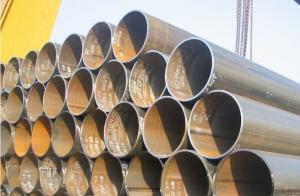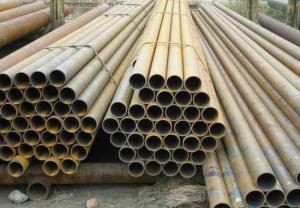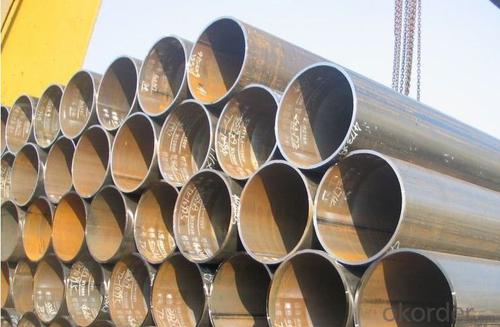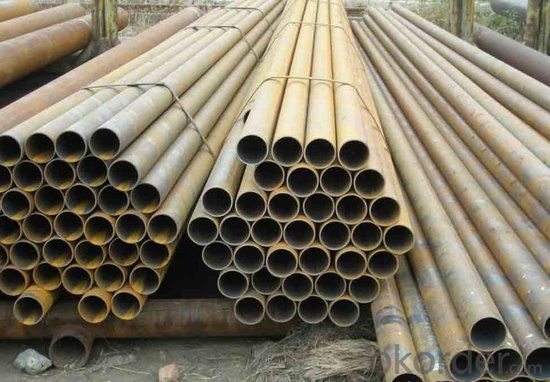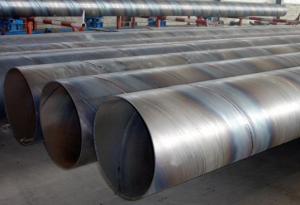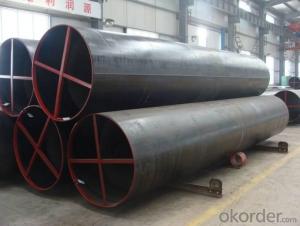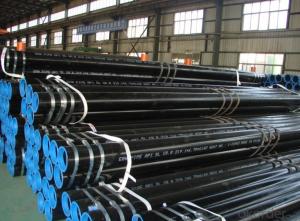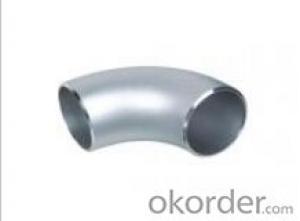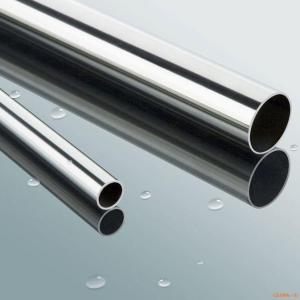Welded Black ERW Steel Pipe Welded Black ERW Steel Pipe
- Loading Port:
- Tianjin
- Payment Terms:
- TT or LC
- Min Order Qty:
- 200 m.t.
- Supply Capability:
- 10000 m.t./month
OKorder Service Pledge
OKorder Financial Service
You Might Also Like
1、Structure of Welded Black ERW Steel Pipe 5L 5 CT :
Welded Black ERW Steel Pipe 5L 5 CT is electric resistance welding, the abbreviation for ERW for transporting oil and natural gas vapor liquid objects, can meet the requirements of high and low pressure, the transport in the world with pipe sector accounted for a pivotal position.With sound reputation and high quality , we will offer clients a wonderful business experience.
2、Main Features of Welded Black ERW Steel Pipe 5L 5 CT :
• High manufacturing accuracy
• High strength
• Good visual effect
• Good view and appearance
• Good shape
• Reasonable price
• Small inertia resistance
3、Welded Black ERW Steel Pipe 5L 5 CT Specification:
Standard | GB, DIN, ASTM ASTM A106-2006, ASTM A53-2007 |
Grade | 10#-45#, 16Mn 10#, 20#, 45#, 16Mn |
Thickness | 1 - 33 mm |
Section Shape | Round |
Outer Diameter | 21 - 610mm |
Place of Origin | Tianjin, China (Mainland) |
Secondary Or Not | Non-secondary |
Application | Hydraulic Pipe |
Technique | Cold Drawn |
Certification | API |
Surface Treatment | factory state or painted black |
Special Pipe | API Pipe |
Alloy Or Not | Non-alloy |
Length | 5-12M |
Outer Diameter | 21.3-610mm |
Grade | 20#, 45#, Q345, API J55, API K55, API L80, API N80, API P110, A53B |
Standard | ASME, ASTM |
1) Material:20#(ASTM A 106/A53 GRB.API5LGRB,GB),45#,16Mn,10#.
2) Specification range:OD:21.3-610mm,WT:6-70mm,length:6-12m or according to the requirement of clients.
3) Excutive standards:GB,ASME API5L.ASTM A 106/A53,Despite of the above standards,we can also supply seamless steel pipe with standard of DIN,JIS,and so on,and also develop new products according to the requirements of our clients!
4) Surface:black lacquered,varnish coating or galvanized.
5) Ends:Beveled or square cut,plastic capped,painted.
4、Packaging & Delivery
Packaging Details: | seaworthy package,bundles wrapped with strong steel strip |
Delivery Detail: | 15-30days after received 30%TT |
5、FAQ of Welded Black ERW Steel Pipe 5L 5②How about price?
Yes, we are factory and be able to give you lowest price below market one, and we have a policy that “ for saving time and absolutely honest business attitude, we quote as lowest as possible for any customer, and discount can be given according to quantity”,if you like bargain and factory price is not low enough as you think, just don’t waste your time.Please trust the quotation we would give you, it is professional one.
③Why should you chose us?
Chose happens because of quality, then price, We can give you both.Additionally, we can also offer professional products inquiry, products knowledge train(for agents), smooth goods delivery, exellent customer solution proposals.Our service formula: good quality+good price+good service=customer’s trust
SGS test is available, customer inspection before shipping is welcome, third party inspection is no problem.
6、 Welded Black ERW Steel Pipe 5L 5 CT Images:
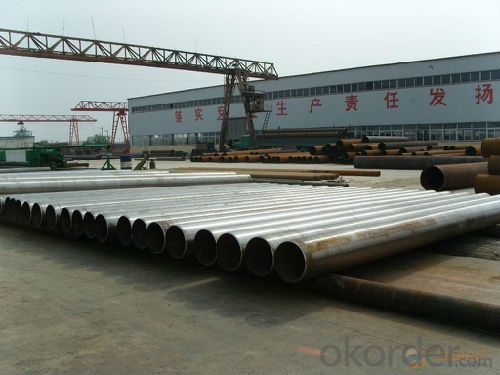
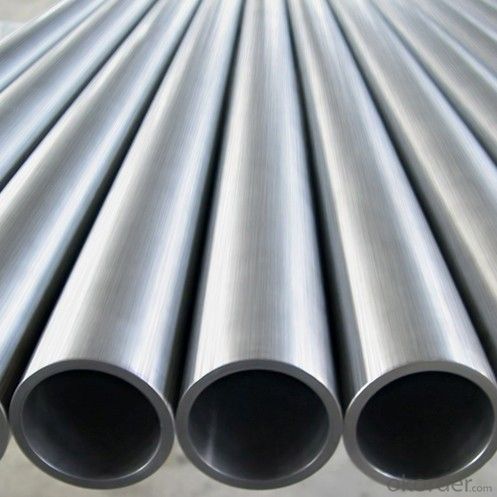
- Q: How are steel pipes tested for strength and durability?
- Steel pipes are tested for strength and durability through various methods, including destructive and non-destructive testing. Destructive testing involves subjecting the pipes to intense pressure or impact to determine their breaking point, while non-destructive testing methods, such as ultrasonic or magnetic particle testing, are used to detect any internal or surface defects that may compromise their strength and durability. These tests ensure that steel pipes meet the required standards and can withstand the intended usage conditions.
- Q: How are steel pipes used in the manufacturing of automotive exhaust systems?
- Steel pipes are commonly used in the manufacturing of automotive exhaust systems as they possess high strength, durability, and resistance to heat and corrosion. These pipes are used to transport exhaust gases from the engine to the tailpipe, ensuring the safe and efficient operation of the vehicle. They are typically bent and welded together to create a complex network of pipes that helps direct the flow of exhaust gases and reduce noise levels. Overall, steel pipes play a crucial role in the construction of automotive exhaust systems, contributing to their reliability and longevity.
- Q: Can steel pipes be used for underground water supply?
- Yes, steel pipes can be used for underground water supply. Steel pipes are strong, durable, and resistant to corrosion, making them suitable for various applications, including underground water supply. However, it is important to use steel pipes that are specifically designed for underground use and are coated or lined to prevent corrosion. Additionally, proper installation and maintenance are crucial to ensure the long-term integrity and functionality of the steel pipes in an underground water supply system.
- Q: What are the advantages of using steel pipes in the manufacturing of storage tanks?
- There are several advantages of using steel pipes in the manufacturing of storage tanks. Firstly, steel pipes are highly durable and have a long lifespan, making them capable of withstanding high pressure and harsh environmental conditions. Secondly, steel pipes offer excellent resistance to corrosion, ensuring the integrity of the storage tank and preventing any leakage or contamination. Additionally, steel pipes are flexible and can be easily fabricated into various shapes and sizes, allowing for customization based on specific storage requirements. Lastly, steel pipes are cost-effective and readily available, making them a popular choice in the manufacturing industry.
- Q: Can steel pipes be used for irrigation systems?
- Yes, steel pipes can be used for irrigation systems. They are strong, durable, and resistant to corrosion, making them suitable for transporting water and withstanding outdoor conditions. However, it is important to ensure proper insulation and maintenance to prevent any potential rust or degradation.
- Q: Are steel pipes suitable for underground gas distribution?
- Yes, steel pipes are suitable for underground gas distribution. They have a high tensile strength, corrosion resistance, and can withstand extreme temperatures, making them an ideal choice for transporting natural gas underground. Additionally, steel pipes are durable and have a long lifespan, making them a reliable option for gas distribution systems.
- Q: What is the role of steel pipes in the transportation of petroleum products?
- Steel pipes have a crucial function in the transportation of petroleum products, as they are specifically designed to endure the high pressure and extreme temperatures associated with oil and gas transportation. A primary responsibility of steel pipes in this process is to serve as a dependable and secure conduit for transporting petroleum products over long distances. They are utilized to construct pipelines that span hundreds or even thousands of miles, connecting oil fields, refineries, and distribution centers. Steel pipes are the preferred choice for this purpose because of their strength, durability, and resistance to corrosion. The high tensile strength of steel allows these pipes to withstand the immense pressure exerted by petroleum products as they flow through the pipelines. Additionally, steel pipes can endure extreme temperatures, ensuring the safe transportation of hot crude oil or refined petroleum products. Moreover, steel pipes possess a high resistance to corrosion, which is of utmost importance given the corrosive nature of petroleum products. To further enhance their corrosion resistance, the pipes are often coated with protective materials such as epoxy or polyethylene. This coating helps prevent leaks or ruptures that could cause environmental damage or safety hazards. Steel pipes also offer cost-effective and efficient transportation of petroleum products. They have a smooth interior surface, which reduces friction and allows for a more efficient flow of oil or gas. This, in turn, helps minimize energy consumption and maximize the throughput of the pipeline system. In conclusion, the main role of steel pipes in the transportation of petroleum products is to provide a reliable, secure, and efficient means of transporting oil and gas over long distances. They are designed to withstand high pressure, extreme temperatures, and corrosion, ensuring the safe and efficient delivery of petroleum products from production sites to refineries and distribution centers.
- Q: Can steel pipes be painted?
- Yes, steel pipes can be painted. The process typically involves cleaning and preparing the surface, applying a primer, and then using a suitable paint or coating to achieve the desired finish.
- Q: What are the different grades of steel used in pipes?
- The different grades of steel used in pipes include carbon steel, alloy steel, stainless steel, and duplex stainless steel.
- Q: What are the different grades of steel used in manufacturing pipes?
- The different grades of steel used in manufacturing pipes are typically categorized based on their chemical composition and mechanical properties. Some common grades include carbon steel, stainless steel, alloy steel, and duplex steel. Each grade has its own unique characteristics and is chosen based on the specific requirements of the application, such as corrosion resistance, strength, and temperature resistance.
Send your message to us
Welded Black ERW Steel Pipe Welded Black ERW Steel Pipe
- Loading Port:
- Tianjin
- Payment Terms:
- TT or LC
- Min Order Qty:
- 200 m.t.
- Supply Capability:
- 10000 m.t./month
OKorder Service Pledge
OKorder Financial Service
Similar products
Hot products
Hot Searches
Related keywords
